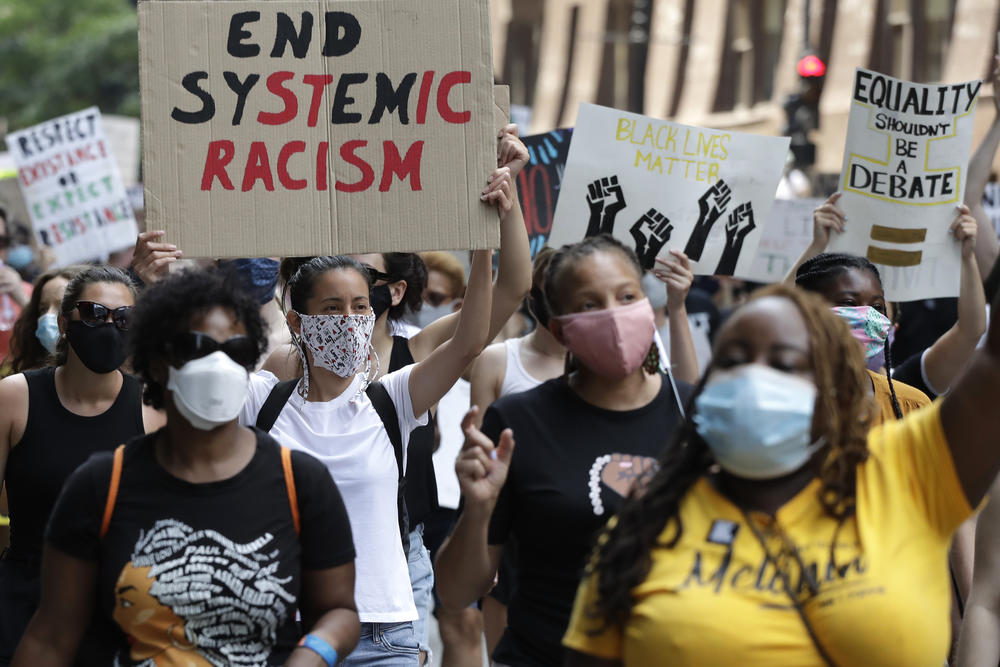
Caption
In this June 19, 2020, file photo, people demonstrate in Chicago, to mark Juneteenth. A national coalition of labor unions, along with racial and social justice organizations, planned to stage a mass walkout from work July 20, 2020, as part of an ongoing reckoning on systemic racism and police brutality in the U.S.
Credit: Nam Y. Huh, AP




